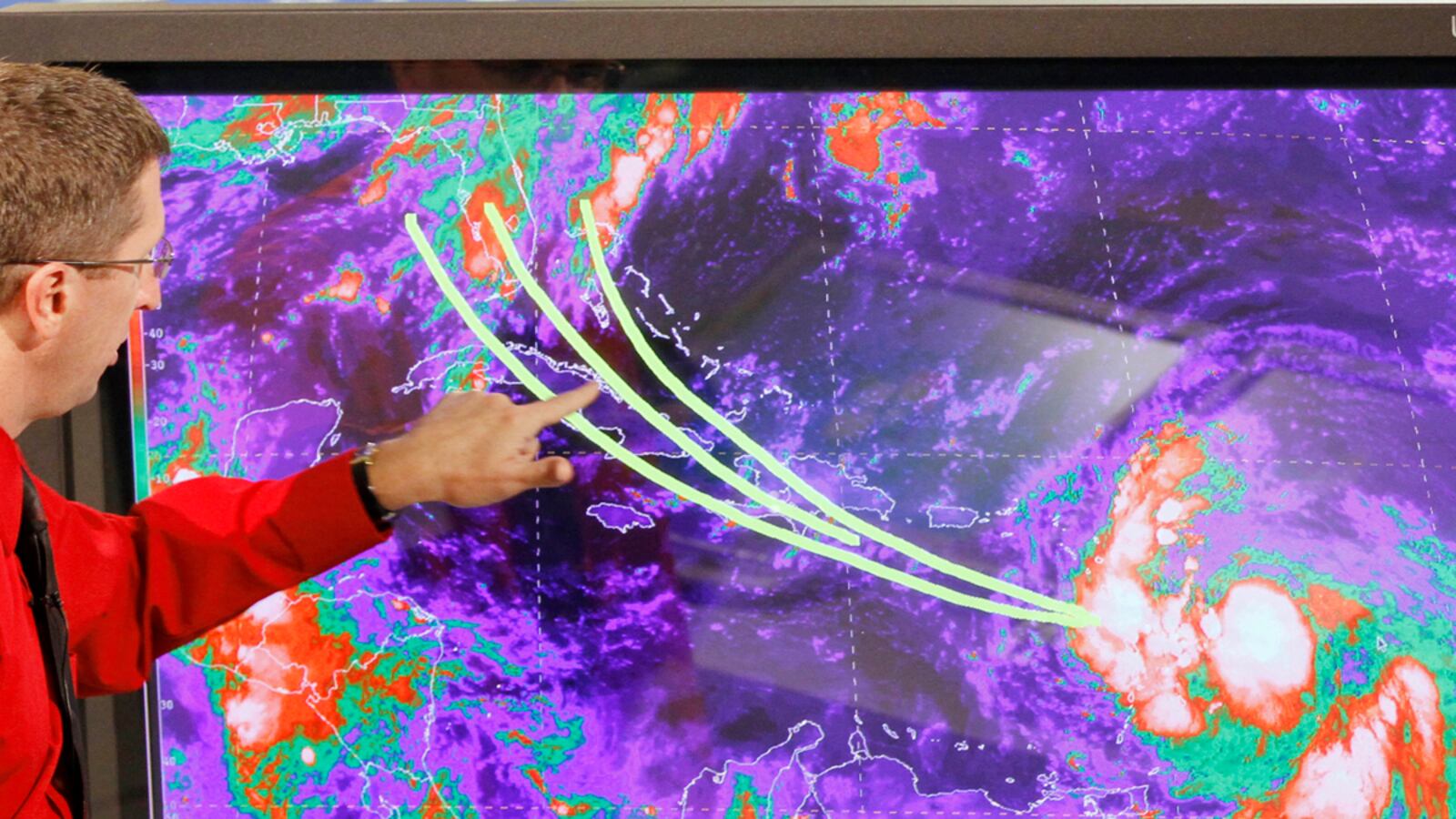After weeks of stagnant poll numbers, Tampa will be a turning point for Mitt Romney and Republican lawmakers. The party’s convention in Florida next week is planned to revive the narrative and show off the best of the Republican candidate and the party’s platform.

But some officials now worry that Tampa could be a turning point of a less preferable sort: Tropical Storm Isaac, which is churning to hurricane strength in the Atlantic and heading straight for the Sunshine State, could force changes to the convention.
Hurricanes are unpredictable, and Florida, perhaps more than any other state, knows how to weather a storm, so the Republican National Committee hasn’t been too concerned by a debilitating storm. Washington staffers are still granting credentials to delegates and journalists, and all of the venues have been confirmed for use next week, according to a committee staffer who asked not to be identified discussing plans.
The heavy lifting, then, may come from Tampa city personnel, specifically safety officials such as fire, police, and flood responders. Tampa Mayor Bob Buckhorn says his city employees are prepared in cases of emergency. And perhaps even to cancel certain events if the weather creates an unsafe environment.
“We have contingency plan after contingency plan,” says Buckhorn. But in an earlier interview, Buckhorn noted that “human life trumps politics” and that he would support postponing the event if the need arose.
That’s a worst-case scenario, but Florida’s Energy Management Division has been monitoring the storm’s path to create constantly changing contingency plans to keep the convention running as planned. In preparation, state officials ran a simulation in May to address a situation precisely like Isaac. “We’ve been preparing for a year and a half,” says Julie Roberts, a spokeswoman for the emergency division. “We’ll continue to monitor the conditions and change our preparations.”
For the sake of security, Republican officials declined to say where the convention’s main events might be relocated if the primary venue, the Tampa Bay Times Forum, becomes incapacitated. Tampa has nearly two dozen other venues large enough for big events, but only a few could accommodate the entire assembly of delegates.
Hurricane season has always been a wild card in Florida during the summer. In 2008, Republicans held their convention in Minneapolis while Hurricane Gustav was hitting the Louisiana coast, which led to the canceling of several speeches, including an address from President George W. Bush.
Despite the planning, weather-monitoring agencies say the current path of the storm doesn’t pose substantial risk to the region. With heavy rain and thunderstorms predicted for Sunday through Tuesday, meteorologist Alex Sosnowski wrote on Accuweather.com that the greatest impact is likely to occur late Monday but shouldn’t be debilitating.
“The worst case scenario from a Tampa standpoint would be if Isaac were to take a rare path by swinging over the Gulf of Mexico, strengthen, then curve northeastward toward or just north of the city on the Florida west coast,” wrote Sosnowski.
No matter what happens, Florida has been in this situation before. Some storms, like Hurricane Andrew, which caused $26 billion in damage across the state in 1992, can cripple the state. But the vast majority of hurricanes to hit Florida don’t pose nearly the same risk. “We do hurricane exercises every year,” says the state’s emergency planner Roberts, “so Florida has plans for these things.”






